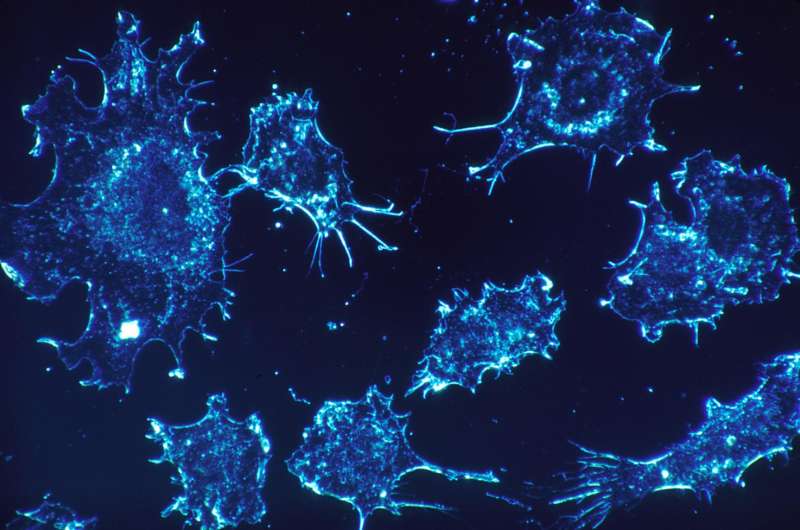Bile duct cancer treatment potential boost from tailored medication—study

Treatment of patients suffering from bile duct cancer could be improved by tailoring medication to the levels of a key protein in people with the disease, according to new research.
Cholangiocarcinoma (CCA) is a deadly disease with few treatments, but researchers in the UK and Thailand have discovered that the PRH/HHEX protein is a key driver in the disease, with increased levels affecting the response of cancer cells to therapeutic drugs.
Formation of CCA is driven by alterations in the levels of the PRH protein which controls genes and signaling pathways in the body—a discovery which could allow doctors to use specific drugs to treat the cancer.
Researchers from the Universities of Birmingham and Nottingham worked with partners at the Chulabhorn Research Institute, in Bangkok. The study, funded by the Medical Research Council (Newton Fund) and Thailand Research Fund, is published in Cancer Research and featured on front cover of Cancer Research Feb 15th 2020 issue.
Dr. Padma Sheela Jayaraman, from the Institute of Cancer and Genomic Sciences at the University of Birmingham, commented: "Clinical efficacy of chemotherapeutic strategies is likely to depend on PRH expression level. Tailoring patient medication according to the individual level of PRH expression could improve clinical usefulness of several compounds, recently suggested as potential novel treatments for bile duct cancer."
Aberrant Notch and Wnt signalling are known drivers of CCA, but the underlying factors controlling these pathways were not previously known.
The researchers found that hyper-activation of Notch and Wnt signalling is connected to dysregulation of PRH. Moreover, they suggest new therapeutic options based on the dependence of specific Wnt, Notch, and CDK4/6 inhibitors on PRH activity.
They demonstrate that expression of PPH is elevated in cases of CCA and that reduction in PRH levels reduced CCA tumour growth in a model of cancer. They showed that high PRH expression in primary human biliary epithelial cells isolated from human liver, by Dr. Simon Afford from the University of Birmingham's Centre for Liver and Gastrointestinal Research, tended to increase cancer cell properties such as invasion and anchorage-independent growth.
Professor Kevin Gaston, from the University of Nottingham School of Medicine and Biodiscovery Institute, commented: "We are excited by the outcomes of this international collaborative study and we are working towards translating these findings into new ways of treating individual patients in the UK and in Thailand, where there is a particularly high incidence of CCA."
More information: Philip Kitchen et al, A Runaway PRH/HHEX-Notch3–Positive Feedback Loop Drives Cholangiocarcinoma and Determines Response to CDK4/6 Inhibition, Cancer Research (2019). DOI: 10.1158/0008-5472.CAN-19-0942














